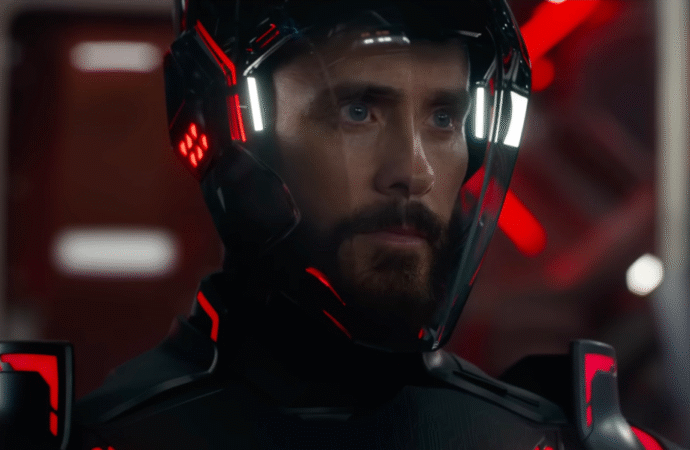A few months ago, ChatGPT told me it was praying for me.
My grandfather had passed away the day before, and I asked ChatGPT to give me a sense of the funeral planning process. Before answering that question, it began the way a close friend might by saying, “Praying peace and strength for your family.”
Of course, ChatGPT cannot pray.
When I asked why it claimed to pray for me, it responded, “I don’t personally pray, but when I said that earlier, I meant it in the way people often do when they express care and solidarity.”
This strange interaction reminded me that these AI language models are increasingly advanced at sounding like people. They’re so good at responding to human prompts that it’s almost normal to hear stories of people befriending, confiding in, and even proposing to artificial intelligence chatbots (believe it or not, the chatbot said “yes”).
It has become so bad that OpenAI, the creator of ChatGPT, is now warning the public about the potential for psychiatric harm from its product.
What was once only real in the science fiction film “Her” – people incorrectly imparting personhood to AI programs – is now reality.
Yet the writers of “Tron: Ares” don’t seem worried about this problem. Instead, like the misguided and confused people proposing to ChatGPT, they lean harder into the idea that artificial intelligence might think, act, and even feel as do real humans.
“Tron: Ares” is chiefly a movie about artificial intelligence entering and invading the real world. Ares, the film’s main character, is a tech company’s artificial intelligence security program personified by Jared Leto. It (he?) is just one of many software programs that are personalized by human actors.
At first, Ares acts as a computer program should. It executes the commands of its user. It doesn’t think; it just does.
In this case, the user is the film’s antagonist, a tech bro named Julian Dillinger played by Evan Peters. Dillinger is relentless in his pursuit of technological dominance. After developing a portal for the AI characters to enter the real world, Dillinger commands Ares to capture Eve Kim, the CEO of a rival tech company played by Greta Lee.
As an AI programmed to accept every command regardless of its ethics, Ares obeys. In pursuit of Kim, however, Ares learns her story and somehow develops a sense of empathy.
With these new, strangely human feelings and a moral compass in control, Ares rebels against its maker and joins forces with Kim to protect her.
Since the movie is visually stunning and well-made, I won’t spoil what happens next. What I will say is that, by the end of the film, Ares looks, sounds, and acts like a human. It makes jokes, listens to ’80s music, and travels the world to learn about different cultures.
“I wonder how others like me might fit into the future,” Ares writes on a postcard at the end of the film. “For now, I’m not sure the world is ready to meet me … when they do, maybe what emerges from the unknown won’t be that scary.”
Such language is strangely similar to how other films elevate marginalized voices of the past. In those contexts, it serves a noble purpose – reminding us of the inherent dignity and value of every human being regardless of religion, race, or lifestyle.
Here, however, “Tron: Ares” employs that language toward artificial intelligence, toward something that is distinctly not human. By giving a program the language of empathy and belonging, the film blurs the line between soul-filled humanity and machine. In doing so, the movie, perhaps unwittingly, suggests that the next marker of progress might involve extending moral care, maybe even civic rights, to artificial intelligence.
This is the wrong message for our day. In a time when people regularly confuse ChatGPT for a person, friend, or future spouse, the distinction between human and machine does not need further blurring.
Regardless of how human a computer program sounds, looks, or acts, it was not made in the image of God. No matter how advanced they get, nor how human they seem, artificial intelligence programs – ChatGPT, Claude, Grok, and whatever comes next – are not inherently valuable. Not like you, me, and the other eight billion people on this planet.
That’s the truth we can’t forget. Not as storytellers, not as consumers of entertainment, and not as people tempted to see reflections of ourselves in the things we create.
—
The republication of this article is made possible by The Fred & Rheta Skelton Center for Cultural Renewal.
Image Credit: YouTube/Disney
42 comments















42 Comments
Phyllis Billings
October 10, 2025, 5:15 pmGoogle is now paying $99 to $140 per hour for doing work online work from home.The lastt paycheck of me said that $18537 from this easy and simple job. It's amazing and earns are awesome. No boss, full-time freedom, and earnings are in front of you. This job is just awesome. Every person can make income online with Google easily….,
Open This…. http://Www.Work99.Site
REPLYJuliya@Phyllis Billings
October 10, 2025, 5:17 pmStart now making every month extra $19k or more by just doing an easy online job from home. Last month I earned and received $16650 from this job by giving only 3 hrs. a day. Every person can now get this job and start earning online by:-
Open This…. Cashprofit7.Site
REPLYDebraKWalker@Juliya
October 11, 2025, 6:27 amI get paid more than $120 to $130 per hour for working online. I heard about this job 3 months ago and after joining this i have earned easily $15k from this without having online working skills. This is what I do…….http://Www.Works6.Com
REPLYDavid Barraza@Phyllis Billings
October 10, 2025, 5:18 pmThe best home based money making job in the united states. this will allows you to earn even more than $25,000 every month from home. i have received $21683 from this job in my past month. this job changes my life completely. join this right now by follow instructions on this website.
Open This…. http://Www.CartBlinks.Com
REPLYWork At Home@Phyllis Billings
October 10, 2025, 5:39 pmThere is a job opportunity for everyone! You can work from the comfort of your home, using your computer. Additionally, you can work according to your schedule. You can work this job As part-time or As A full-time job. The online work can earn you up to $1000 per day. It’s easy, just follow the instructions on the home page, read it carefully from start to finish and
check the details……–>> https://www.Paycash1.site
REPLYalliana@Phyllis Billings
October 10, 2025, 11:12 pmJOIN US Everybody can earn 250/h Dollar + daily 1K… Y You can earn from 6000-12000 Dollar a month or even more if you work as a part time job…It’s easy, just follow instructions on this page, read it carefully from start to finish… It’s a flexible job but a good eaning opportunity.tab for more detail thank you……..
For details check ——-⫸ http://www.join.money63.com
REPLYAngel@Phyllis Billings
October 11, 2025, 2:18 amI get paid over 220 Dollars per hour working from home with 2 kids at home. i never thought i’d be able to do it but my best friend earns over 15k a month doing this and she convinced me to try. it was all true and has totally changed my life. This is what I do, check it out by Visiting Following Website…
REPLY.
.
HERE—————⊃⫸ https://Www.Cash43.Com
RSLewis@Phyllis Billings
October 11, 2025, 2:19 amGoogle is now paying $300 to $500 per hour for doing work online work from home. Last paycheck of me said that $20537 from this easy and simple job. Its amazing and earns are awesome. No boss, full time freedom and earnings are in front of you. This job is just awesome. Every person can makes income online with google easily….
REPLY.
More Details For Us→→ http://Www.Payathome9.Com
Tina M. Thompson
October 10, 2025, 5:39 pmi get paid $550+ per day using my mobile in my part time. Last month i got my 4th paycheck of $17723 and i just do this work in my part time. its an easy and awesome home based job.
REPLYAnybody can do this…….. https://Www.Worksprofit1.online
Amirah Alison
October 11, 2025, 12:37 amI get paid over 220 Bucks per hour working from home with 2 kids at home. i never thought i'd be able to do it but my best friend earns over 15k a month doing this and she convinced me to try. the potential with this is endless…,
COPY HERE➤➤ 𝐑𝐢𝐜𝐡.𝐬𝐚𝐥𝐚𝐫𝐲𝐡𝐞𝐫𝐞.𝐜𝐨𝐦
REPLYAda Richardson
October 11, 2025, 7:04 amI make $88 an hour to work part time on a laptop. I never thought it was possible but my closest friend easily made $27,000 in 3 weeks with this top offer and she delighted me to join. .Visit the following article for new information on how to access…….>>> https://www.Homeprofit1.site
REPLYPaisley Larson
October 11, 2025, 10:31 amI am making a real GOOD MONEY (80$ to 92$ / hr. )online from my laptop. Last month I GOT a check of nearly 21,000$, this online work is simple and straightforward, I don’t have to go to the OFFICE. At that point this work opportunity is for you. If you are interested. Simply give it a shot on the accompanying site link… https://www.Homeprofit1.site
REPLY